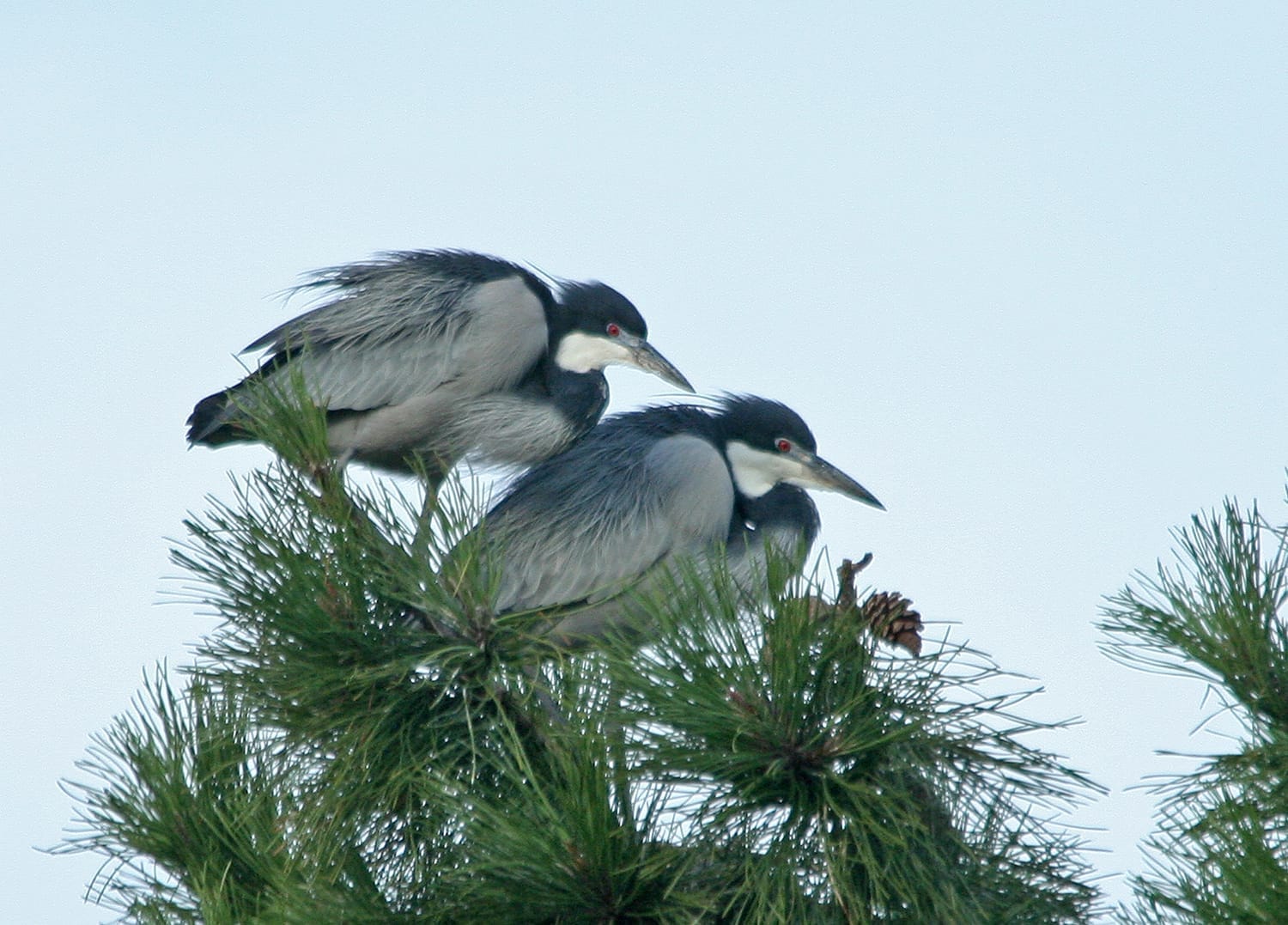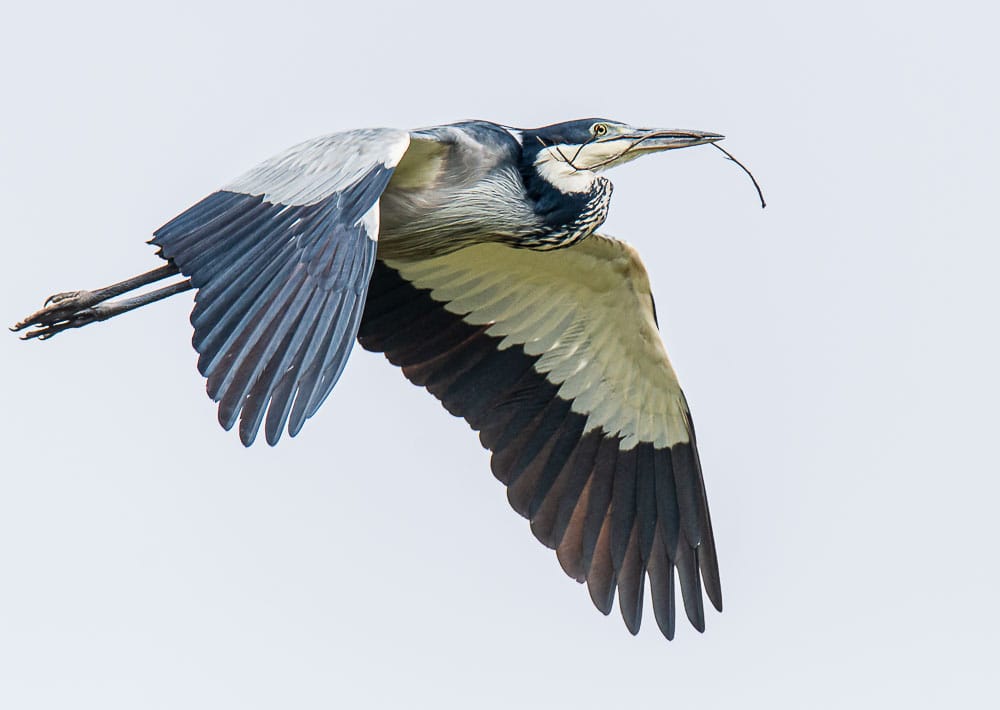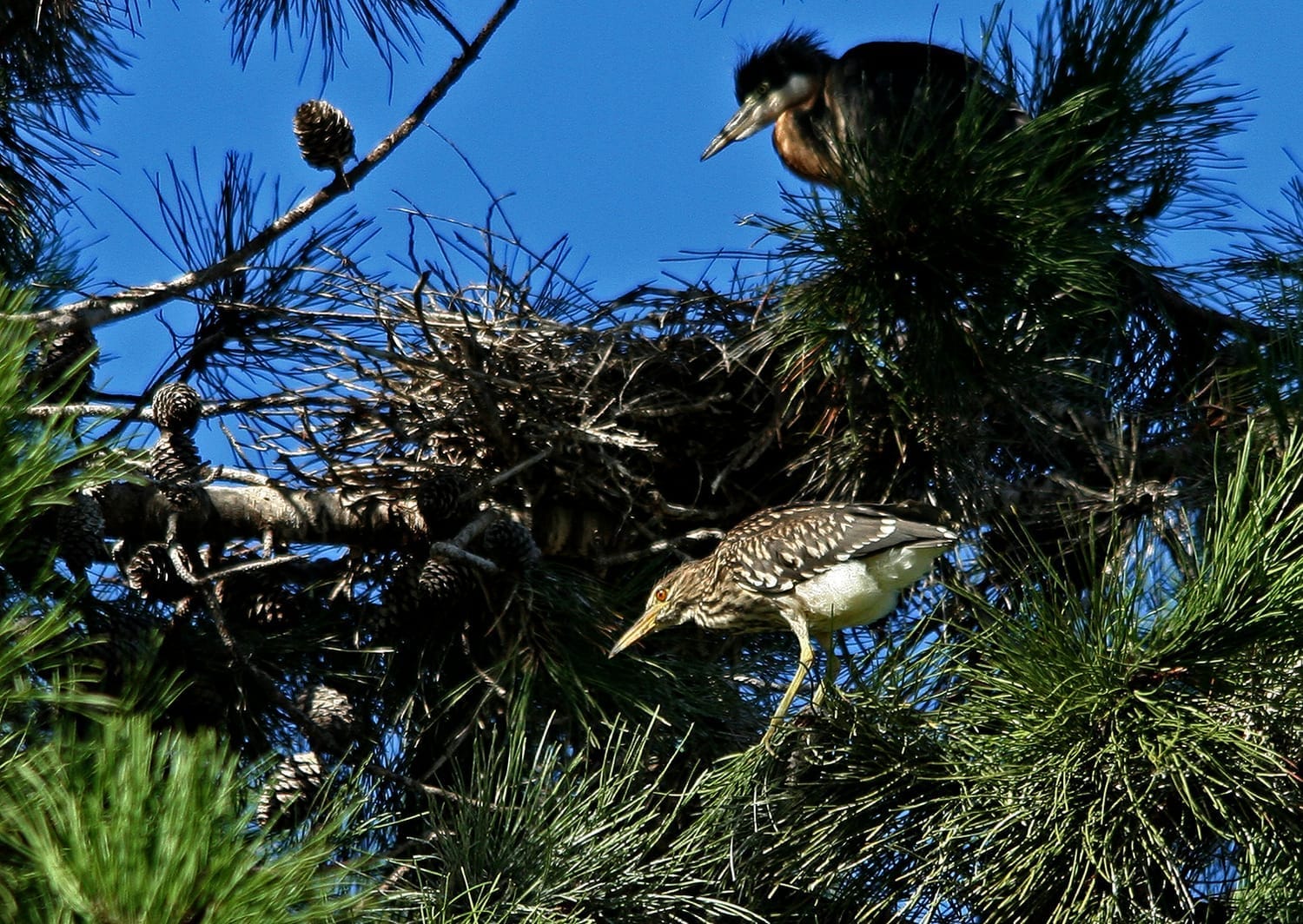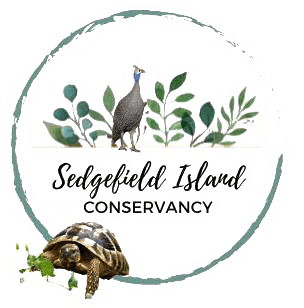Colonial Birds Nesting in Suburbia

The Happy Event
In winter and spring, colonial nesting birds such as herons, egrets, ibis, spoonbills, and cormorants start preparing for the nesting season as they select mates, build nests, lay eggs, and rear chicks. When this happens in a big tree in your garden, this happy event is often welcomed by the homeowner and neighbours. The sight of these elegant birds flying in and out, their mating rituals and nest building all provide great joy for nature lovers.
The habit of nesting in groups is believed to provide better survival against predators. To this end, a large tree is required that is also near to a reliable food source. The Sedgefield Island provides several appropriate sites.

The Honeymoon is Over
However, the ‘happy event’ can soon lose it attraction. These heronries often become problematic to the humans residing in the area. The guano’s smell is offensive and permeates a large area surrounding the heronry. The parent birds are noisy, and their calls begin at dawn and interrupt human sleep. The calling is incessant throughout the day.
The chicks are messy eaters and quantities of their food (particularly fish) is dropped to the ground where it attracts scavengers, rots in the heat of the day and adds to the offensive smell surrounding the heronry.
Are Heronries just for Herons?
The founders of a nesting colony are often herons and their cousins, the egrets. (Both herons and egrets are called ‘reiers’ in Afrikaans and share similar names in Dutch and German.) So, it is quite appropriate to call it a heronry, despite all the guests that move in.

The chicks are messy eaters and quantities of their food (particularly fish) is dropped to the ground where it attracts scavengers, rots in the heat of the day and adds to the offensive smell surrounding the heronry.
The question always arises at this point, ‘What can we do to fix this problem?’
The short answer is that you cannot chase them or interfere with them once nesting has commenced and until all young have flown the nest. The longer answer is to approach the Island Conservancy for support and assistance if the birds have taken residence. You can also do something to prevent it from happening to you.
The Conservancy can Provide Support
We are fortunate to live on an island surrounded by a national park that is known for its exceptional birdlife. This singular privilege comes with conservation and legal responsibilities. Our objective is to make human lives easier while ensuring that the birds’ breeding season has a successful outcome.
The Conservancy will monitor bird behaviour, quickly identifying where the birds will probably be nesting. Once we see where they are setting up their heronry, we start interaction with all the people living nearby, as well as property owners, in the case of rentals and holiday accommodation.
We will:
Make sure that you know your rights as well as what is required of you by the applicable legislation and good conservation practice. In the Western Cape it is illegal to disturb protected species, including all the colonial nesting species—see The Law regarding Birds further down.
We will monitor breeding colonies on our island and protecting them as far as possible from disturbance. Interference in a heronry could precipitate a decrease in nesting effort and nesting success. Too much human activity in the vicinity of a heronry may cause birds to abandon their eggs and young.
Provide or manage physical support for cleaning up mess and managing smells.
Interact with the authorities, mainly Knysna Municipality and Cape Nature, to ensure that all our actions meet their requirements.
What Can I do to Clean Up My Property?
If the nest trees are on the verge outside your property or overhang the verge, the municipality have provided excellent clean-up teams in the past. These municipal teams will remove the offensive materials and spread lime or pine gel on municipal property, to reduce the acidity and odour. This service can be coordinated by contacting the Conservancy on the numbers above.
Although we will coordinate communication with Knysna municipality, the municipality does not offer services on private property. To keep your garden clean odour-free, we suggest the following:
Sprinkling agricultural lime on guano reduces the acidity and may save your lawn or plants. Lime will also reduce the smell.
Regularly rake up and bag the guano and spilled food to reduce the smell and risk of infection.
Apply Pine Gel to the area to fight the odour and as a mild disinfectant,
How You can Help
Luckily, the Island has many avid dog walkers and hikers that can be encouraged to monitor increased nesting activity around a specific tree. Please report this to the Conservancy.
Explaining to neighbours what the Conservancy is doing and why is very important and has been neglected in the past. By promoting conservation, assisting with environmental initiatives, and inviting local people to discuss and cooperate in future policies – the conservancy is taking up a responsible role in society. Thanks to this people are starting to see the conservancy as a benefit – and not a burden.
Working with people and building long term relationships with them involves more than saying hello to each other every day over the fence!

Protecting our Natural environment whilst creating a better environment for people.
+27 (0)83 376 7846
Quick links
Follow us
Newsletter
Subscribe now to get our newsletter.
Created with © systeme.io




